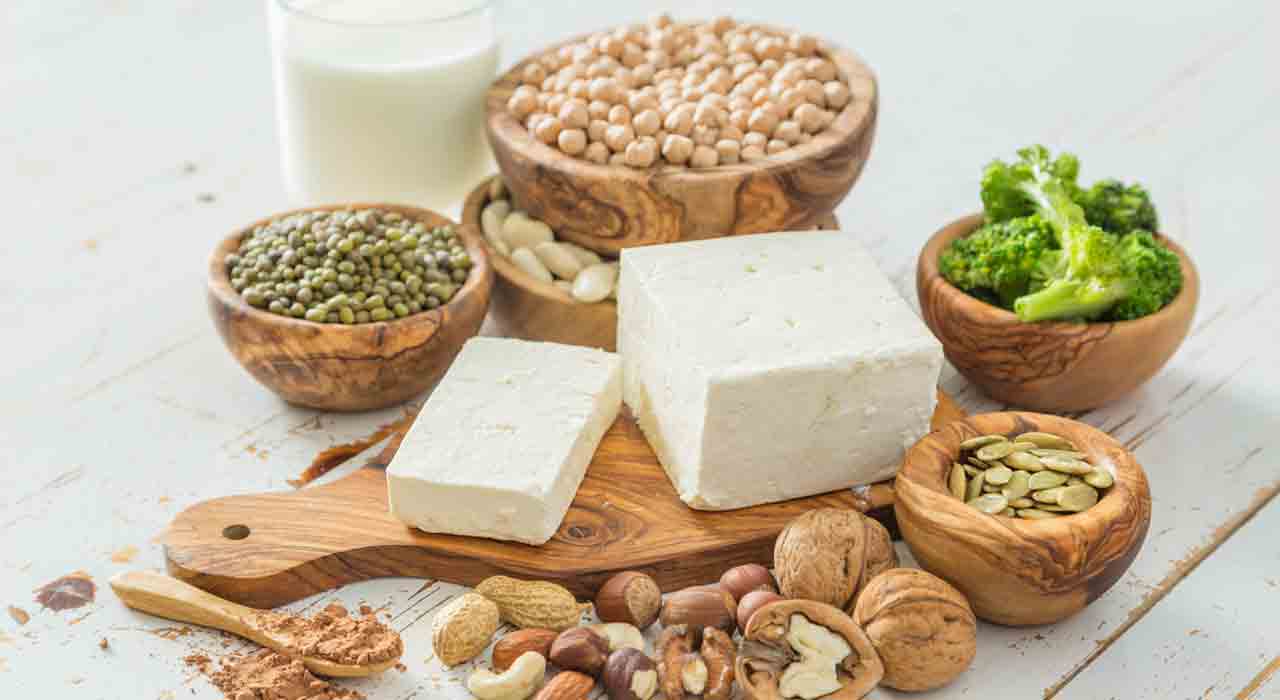By Harriet Mallinson | Published on June 14, 2017
Giving up meat might well be the answer for those trying to shed the pounds.
New research has found that a plant-based vegetarian diet leads to greater weight loss compared to a calorie-equivalent diabetes diet.
In a study published in the Journal of the American College of Nutrition, 74 men and women with type 2 diabetes adopted a 500-calorie reduced diet for six months. One half adopted a vegetarian diet while the other ate a conventional diabetes diet.
An example of a plant-based meal plan eaten by the first group included: cooked millet with plums and almonds for breakfast; lentil soup with carrots and cabbage for lunch; brown rice with marinated tofu and bean sprouts for dinner; and vegetables, fruits, and carrot sticks with hummus for snacks.
Those on the traditional diabetes diet would consume such meals as: peanut butter raisin oatmeal for breakfast; a tuna-cucumber wrap for lunch; honey lemon chicken with brown rice and vegetables for dinner; and low-fat plain yogurt, fruit, and carrot and celery sticks with a low-fat dairy dip as snacks.
Amazingly, the veggie group lost 13.67lbs, nearly twice as much weight as their counterparts who shed 7.05lbs.
“A plant based diet tends to be lower in energy, and can be filling due to the fiber content,†Rebecca McManamon, BDA spokesperson and registered dietitian, told MACROS.
“Fiber is beneficial for digestive health as well as diabetes control, and increasing fruit and vegetables helps prevention of some cancers as well as cardiovascular disease.â€
An exercise regimen was introduced to both groups halfway through the study, but those following the plant-based diet maintained the exercise at a higher rate than those following the traditional diabetes diet. They also had an easier time sticking to the prescribed meal plans during the training program.
“What we found is that a plant-based vegetarian diet is a helpful tool for anyone who is serious about staying healthy and lean, especially as we age,” says Dr. Hana Kahleova, lead study author and director of clinical research at the non-profit Physicians Committee, based in Washington D.C.
“A diet built around plants is naturally rich in vitamins, minerals, and phytochemicals, which leaves us feeling energized and refreshed instead of hungry and fatigued. Part of the reason a vegetarian diet works so well for many people is because it’s easy to stick to.”
– RELATED: Would Indulgent Food Labels Make YOU Eat More Veg? –
The research team also studied the fat storage of both groups, with those on the vegetarian diet losing more muscle fat than the other participants.
“Losing muscle fat increases insulin sensitivity,” says Dr. Kahleova, “by taking extra fat out of the muscle cells, we’re letting insulin back in to convert sugar into energy. This uptick in the conversion of calories is the equivalent to a metabolic reboot, especially for people who struggle with extra weight, a sluggish metabolism or type 2 diabetes.”
Currently, two in three American adults struggle with their weight, while nearly half of overweight adults are trying to slim down.
A plant-based diet, therefore, could well be the answer. A weight-loss meta-analysis published in 2015 finds people who follow a vegetarian diet weigh 7.5 to 10 pounds less, on average, than those who adhere to traditional weight-loss diets.
So, how can you follow a plant-based diet while still getting enough protein? “I would recommend planning meals to ensure there is enough protein and making sure you have a variety of vegetables and pulses,†says Rebecca.
“Protein sources include lentils, beans, soya, tofu and nuts. Take care with nut ‘milks’ though, as they often contain very little protein; taking a handful of raw nuts or adding to cooking will ensure you are getting the benefits of this protein source.â€
She continues: “Soya is also linked with lower cholesterol and may help menopausal symptoms but it needs to be eaten daily to get the full effect. Eggs, too, are advisable as they are a low calorie high protein source and provide iron and other minerals like selenium.â€
Nevertheless, it can be hard, as well as pricey, for some people to make such a drastic change to their nutrition.
“Plant based diets need a lot of preparation forward thinking to ensure your diet is balanced and not monotonous,†explains Rebecca. “It may be hard for people who need to eat on the go; higher end lunch on the go outlets may have more plant-based choices but they tend to be a lot more expensive.â€
She concludes: “This diet, like any diet for diabetes, may not work for every individual, it has to be the diet that works for you.â€
Harriet is Editor of MACROS and perfectly capable of eating an entire log of goat’s cheese in one sitting.

